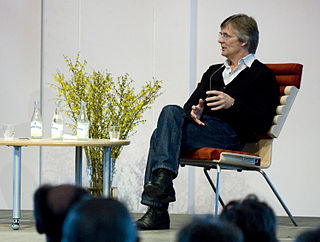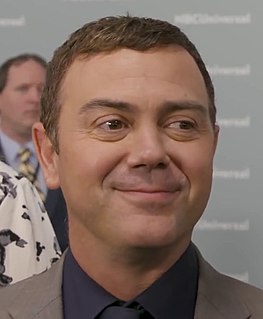A Quote by Bille August
I wanted to make Jerusalem as feature film. But we couldn't finance it only through theatrical release, we couldn't get all the money we needed. We had to get some money from television. So we said, ok, let's do it both ways. So we did it in four parts.
Related Quotes
I grew up doing plays - I went to a stage school after school - and it's always something that I've wanted to do, but, in a weird way, if you do television and film and you didn't go to drama school and don't have a theatrical background, it's hard to get your foot in the door. In the same way that it is for theater actors to get into television and film. There's a weird prejudice that goes both ways.
When I said that something was going to cost a certain amount of money, I actually knew what I was talking about. The biggest problem that we were having on the financing front was people with lots of money saying "you need more money to make this film [Moon]," and us saying "no this is the first feature film we want to do it at a budget where we sort of prove ourselves at the starting end of making feature films; we can do this for $5 million." That is where the convincing part between me and Stuart came, we had to convince people with money that we could do it for that budget.
I gladly, I voluntarily gave up the kind of commercial film career I had going as soon as I had enough money to finance my own films. I didn't make that money necessarily from the film business, but I eventually made a lot of money and that's what I do. Of course, I consider myself unbelievably fortunate, and I'm pretty content with my life.
People look at me in many ways. They've said, 'The guy has no regard for money.' That is not true. I have had regard for money. It depends on who's saying that. Some people worship money as something you've got to have piled up in a big pile somewhere. I've only thought about money in one way, and that is to do something with it. I don't think there's a thing I own that I will ever get the benefit of except through doing things with it. I don't even want the dividends from the stock in the studio, because the government's going to take it away. I'd rather have that in (the company) working.
To walk in money through the night crowd, protected by money, lulled by money, dulled by money, the crowd itself a money, the breath money, no least single object anywhere that is not money. Money, money everywhere and still not enough! And then no money, or a little money, or less money, or more money but money always money. and if you have money, or you don't have money, it is the money that counts, and money makes money, but what makes money make money?
Even after I had just done Twilight, which made $400 million at the worldwide box office, I could not get financing for three or four projects that I really loved and I thought people would love because they didn't fit some studio or investor's model of thinking, "This will definitely make money." It's a business and a film does potentially cost millions of dollars, and they have to think that they're going to get their money back somehow.
The reality of television production now is that all the development money and pilot money now goes to the Internet so they can try to get pilots cheaper, than if they were producing them for television. I understand, it's a business, but what's great about doing it on the web, and one thing that attracted me is the amount of creative freedom that you do get with the web. That's the only advantage of there not being a lot of money involved, is that you're really able to write and do what you want... because there's not a lot of money involved and not money at risk.
I always tell new people in show business. I say, "Look, show business pays you a lot of money, because eventually you're gonna get screwed. And when you get screwed, you will have this pile of money off to the side already." And they go, "OK, OK. OK, you ready? You ready?" "I got screwed." "You got the pile of money?" "Yeah, I'm fine." I mean, that's the way it works.






































